AESA PROGRAMMES
- Building R&D Infrastructure
- Developing Excellence in Leadership, Training and Science in Africa (DELTAS Africa)
- Human Heredity and Health in Africa (H3Africa)
- Africa’s Scientific Priorities (ASP)
- Innovation & Entrepreneurship
- Grand Challenges Africa
- Grand Challenges Innovation Network
- Rising Research Leaders/Post-Docs
- AESA RISE Postdoctoral Fellowship Programme
- African Postdoctoral Training Initiative (APTI)
- Climate Impact Research Capacity and Leadership Enhancement (CIRCLE)
- Climate Research for Development (CR4D)
- Future Leaders – African Independent Research (FLAIR)
- Critical Gaps In Science
- Clinical Trials Community (CTC)
- Community & Public Engagement
- Mobility Schemes: Africa-India Mobility Fund
- Mobility Schemes: Science and Language Mobility Scheme Africa
- Research Management Programme in Africa (ReMPro Africa)
- Science Communication/Africa Science Desk (ASD)
- Financial Governance: Global Grant Community (GGC)
- AAS Open Research
- CARI Programmes
- Evidence Leaders Africa (ELA)
The African Postdoctoral Training Initiative (APTI)
The African Academy of Sciences (AAS), the U.S. National Institutes of Health (NIH) and the Bill & Melinda Gates Foundation are partnering under the auspices of the Coalition of African Research & Innovation (CARI) to establish a post-doctoral training fellowship program, the African Postdoctoral Training Initiative (APTI). Training will be at a world class institute, the intramural laboratories of NIH.
APTI fellows will train in a global health research area of priority for their home institutions and countries, and AAS, BMGF and NIH, while building bridges and lasting connections between the partner organizations and African scientists and institutions. While at the NIH, the fellows must be on leave or sabbatical from their home institution under the NIH Intramural Visiting Fellow Program (https://policymanual.nih.gov/2300-320-3). The research priority areas are in infectious diseases, nutrition, and reproductive, maternal, and child health and developing skills for clinical and translational research. Research on other significant burdens of disease in Africa will also be considered. More information available
APTI fellows will be expected to lead important research programs in their home countries and institutions. After successful completion of the two-year postdoctoral fellowship, trainees will be provided with 50% salary support for an additional two years to assist their transition into independent researchers.
The main objective of APTI is to train a cadre of African scientists so they return to their home institutions and become scientific leaders in their community, help solve Africa’s challenges in global health and development, and in turn become trainers of the next generation. A key ingredient is a focus on the home institutions. As such, APTI expects commitment from home institutions to provide a conducive research environment and dedicated research time for the fellows upon their return home. APTI fellows are expected to be a part of an African regional and global web of collaborations connecting to their home institutions. APTI fellows will linked to an existing African and global scientific networks and are expected to nurture these scientific collaborations and relationships.
-
Must be citizens of and currently employed in an academic, research, or government position in an African country.
-
Must have a relevant doctoral degree (e.g., PhD, MD, MBBS) awarded no more than 15 years earlier.
-
Must have less than 5 years of relevant research experience following the award of their doctoral degree by their start date at the NIH. The maximum five years of research experience are only after the doctoral degree has been earned. Research conducted before the award of the doctoral degree does not count against this time.
-
Professional merit, scientific ability, and potential future career impact (based on CV, letter of interest, and two reference letters).
-
Assurance and availability of resources from the home institution for a designated, funded research position for the postdoc upon completion of their fellowship (expressed in letter from director/head of research of home institution).
-
Commitment to return to their home country following completion of training (expressed in a letter of interest).
-
A selection committee will ensure the best match of outstanding candidates and NIH laboratory positions. Additional selection factors may include diversity in scientific research areas, geographic origin, and gender.
Susan Gichoga
Grants Officer, African Academy of Sciences
Phone: +254 20 240 5150. Email: apti@aasciences.ac.ke
Jackie Officer
Program Specialist, Fogarty International Center, NIH
Phone: +1-301-496-4784. Email: jackie.officer@nih.gov
Stacy Wallick
Program Officer, Fogarty International Center, NIH
Phone: +1-301-496-4784. Email: stacy.wallick@nih.gov
Meet the Team
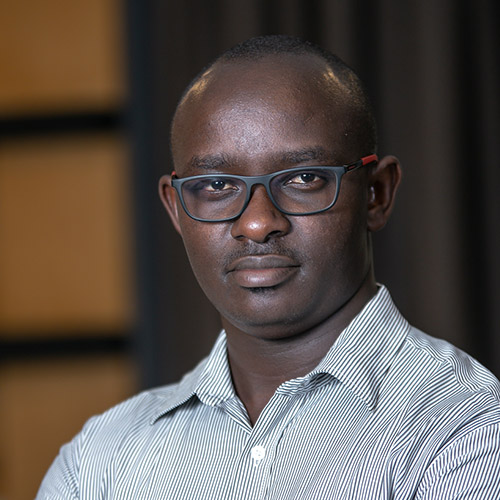
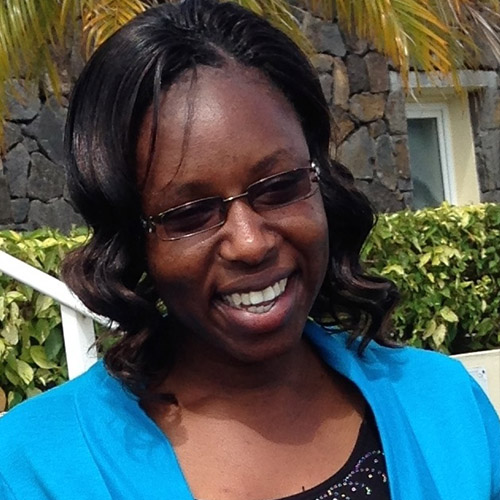
African Postdoctoral Training Initiative Fellows and NIH Hosts
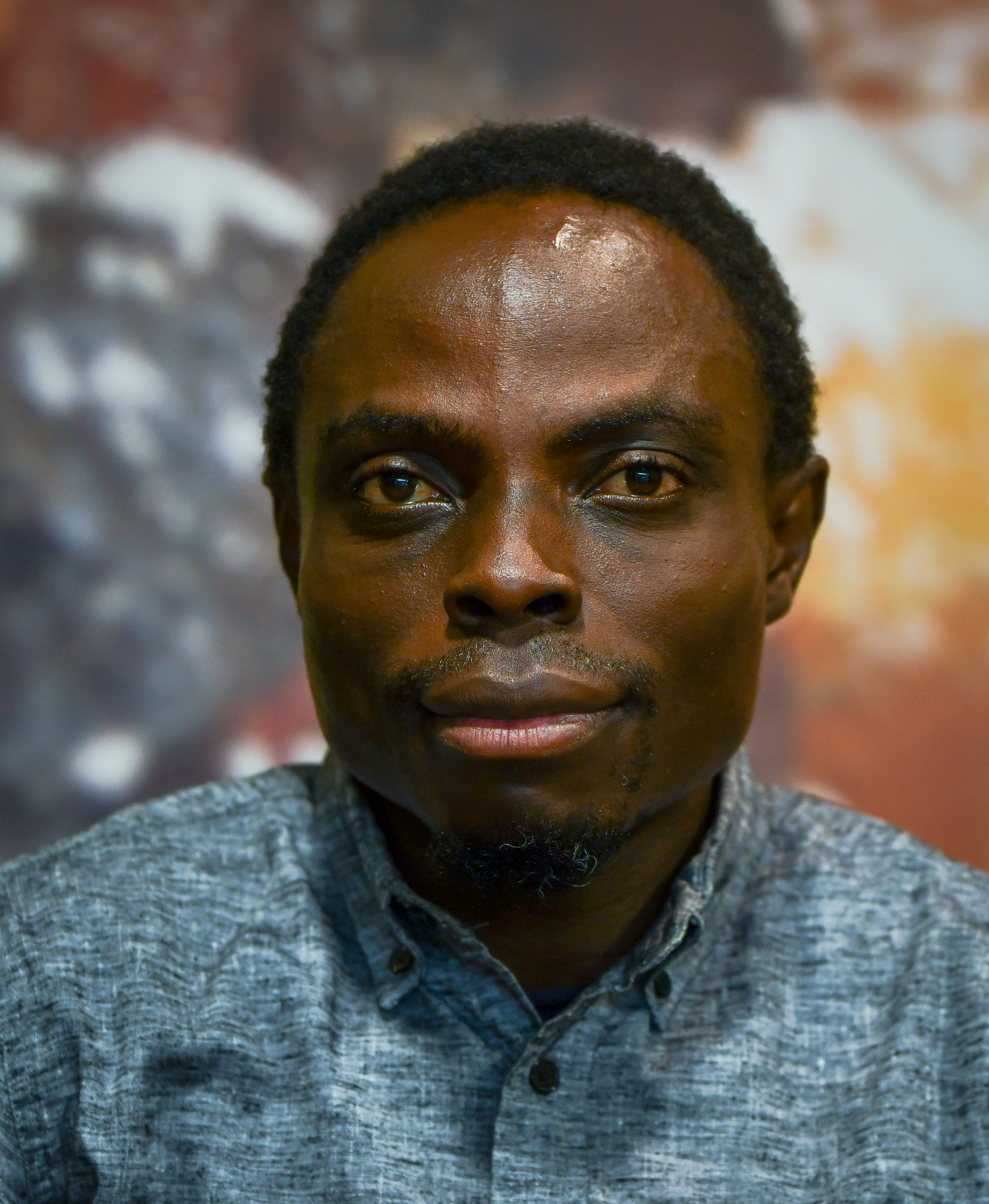 Dr. Idowu Aimola
Dr. Idowu Aimola Nigeria
2019
Research area: diabetes, maternal and child health
Home institution: Ahmadu Bello University, Nigeria
Host institution: National Human Genome Research Institute
Dr. Aimola will spend his fellowship year at the National Human Genome Research Institute (NHGRI) under the mentorship of Francis Collins, MD, PhD. His research will focus on characterizing the differentiation pathway of induced pluripotent stem cells to the pancreatic beta cells lineage.
Dr. Aimola received a PhD in biochemistry from Ahmadu Bello University Zaria, with several scholarly publications. He was a Fulbright scholar at the Department of Developmental and Regenerative Medicine
Mount Sinai School of Medicine New York.
Dr. Aimola’s long-term research goals are directed towards understanding gene function and patterns of gene expression with underlying molecular events of blood stem cell development and uncovering novel molecular and epigenetic control mechanisms governing the developmental expression of human globin genes. Idowu Aimola is an Academic Staff at the Department of Biochemistry, Ahmadu Bello University, Zaria.
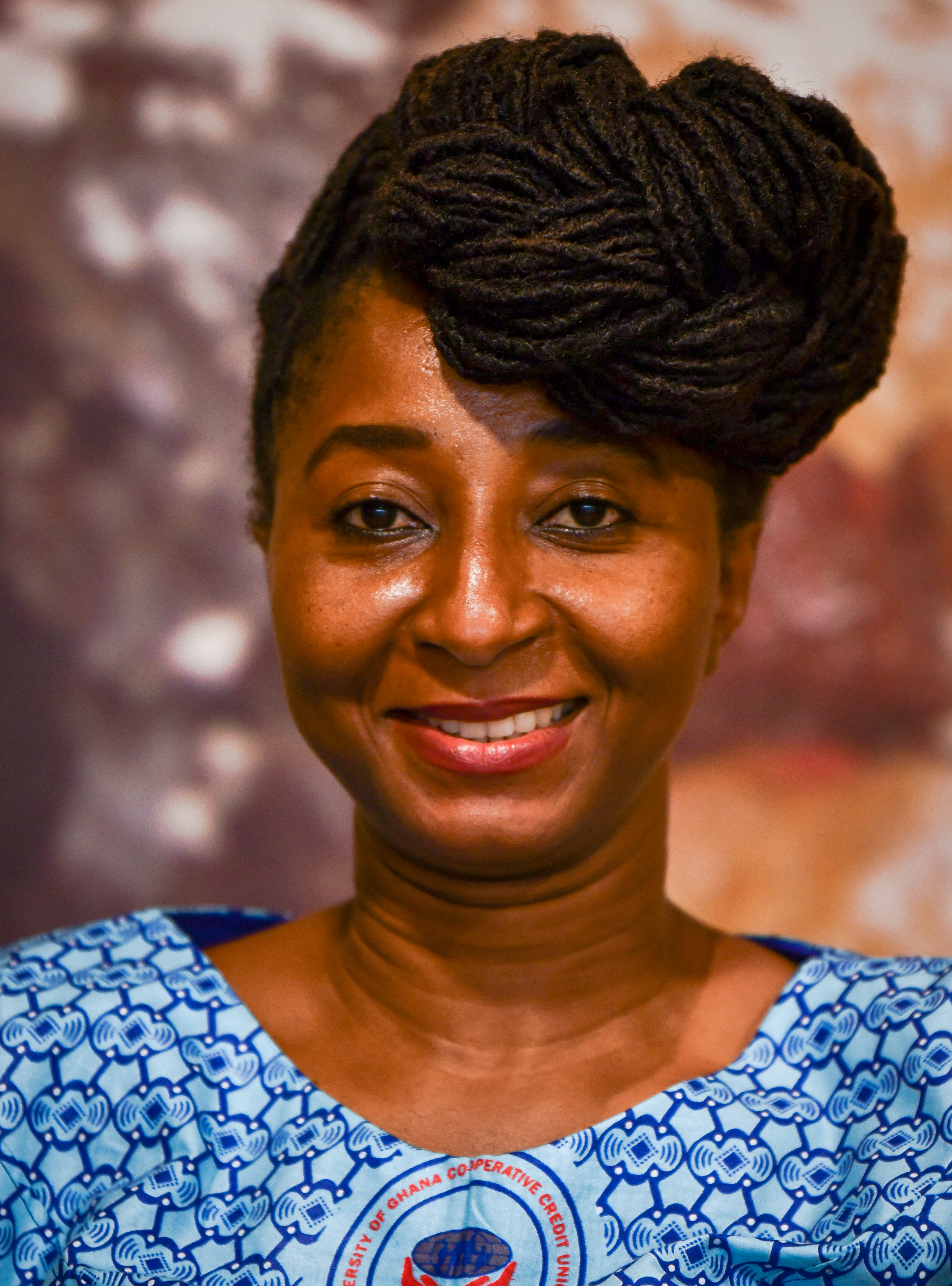 Dr. Nana Ama Amissah
Dr. Nana Ama Amissah Ghana
2019
Research area: infectious diseases
Home institution: Noguchi Memorial Institute for Medical Research, Ghana
Host institution: National Institute of Allergy and Infectious Diseases
Dr. Amissah will spend her fellowship at the National Institute of Allergy and Infectious Diseases (NIAID) under the mentorship of Michael Otto, PhD. Her research will focus on investigation intra- and interspecies competition that resulted in the dominance of a specific Staphylococcus aureus strain in Buruli ulcers. Specifically, she will focus on the factors that influence bacteriocin expression, mode of action and host cell immunity.
Dr. Amissah received a PhD in Sciences from the University Medical Center Groningen, University of Groningen, Netherlands in 2017. She gained knowledge in Staphylococcus aureus and Mycobacterium ulcerans epidemiology in skin and soft tissue infections. She is a Research Fellow at the Noguchi emorial Institute for Medical Research, University of Ghana. Dr. Amissah plans to study mechanisms used by staphylococci and other Gram-positive bacteria to evade the human immune system and drug therapy, focusing mainly on the strategies used to evade host antimicrobial peptides. Focusing on African staphylococcal isolates will unravel yet unrecognized staphylococcal immune evasion mechanisms.
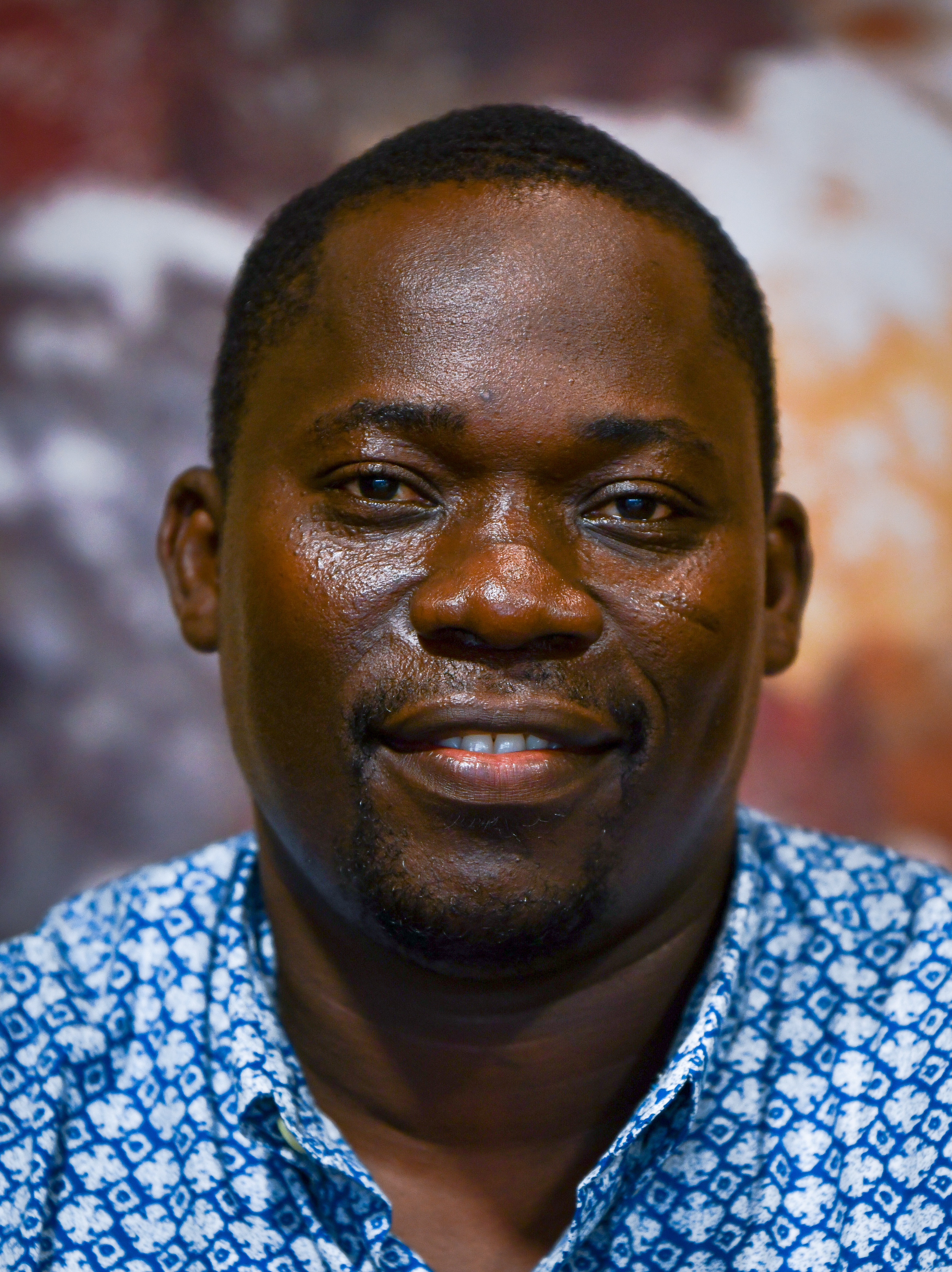 Dr. Thomas Hormenu
Dr. Thomas Hormenu Ghana
2019
Research area: diabetes
Home institution: University of Cape Coast, Ghana
Host institution: National Institute of Diabetes and Digestive and Kidney Diseases
Dr. Hormenu will spend his fellowship at the National Institute of Diabetes and Digestive and Kidney Diseases (NIDDK) under the mentorship of Anne Sumner, MD. His research will focus on establishing how lifetime nutritional exposures lead to diabetes throughout lifespan in Ghana.
Dr. Hormenu completed his PhD training in Health Promotion at the University of Cape Coast in 2017. He examined and established baseline information on factors influencing adolescents’ health behaviors in
Ghana. Dr. Hormenu is a lecturer at the University of Cape Coast, teaching, researching and training undergraduate and postgraduate students.
Dr. Hormenu’s research goal is integrate the research experience he will acquire from the postdoctoral training at NIH in his home country and the University of Cape Coast, Ghana, where he wishes to design nutritional surveys, assess physical activity and model data from oral and intravenous glucose tolerance tests and elucidate the relationship between nutritional exposures related to culture and history and glucose parameters such as insulin resistance, beta-cell failure and glucose effectiveness. Dr. Hormenu is interested in building, maintaining collaborative relationships and forming research consortium with teams of experts in academics; clinicians and other health professionals to conduct research into finding the causal factors and issues of public health concerns and developed evidence based culturally sensitive efficacious health promotion interventions.
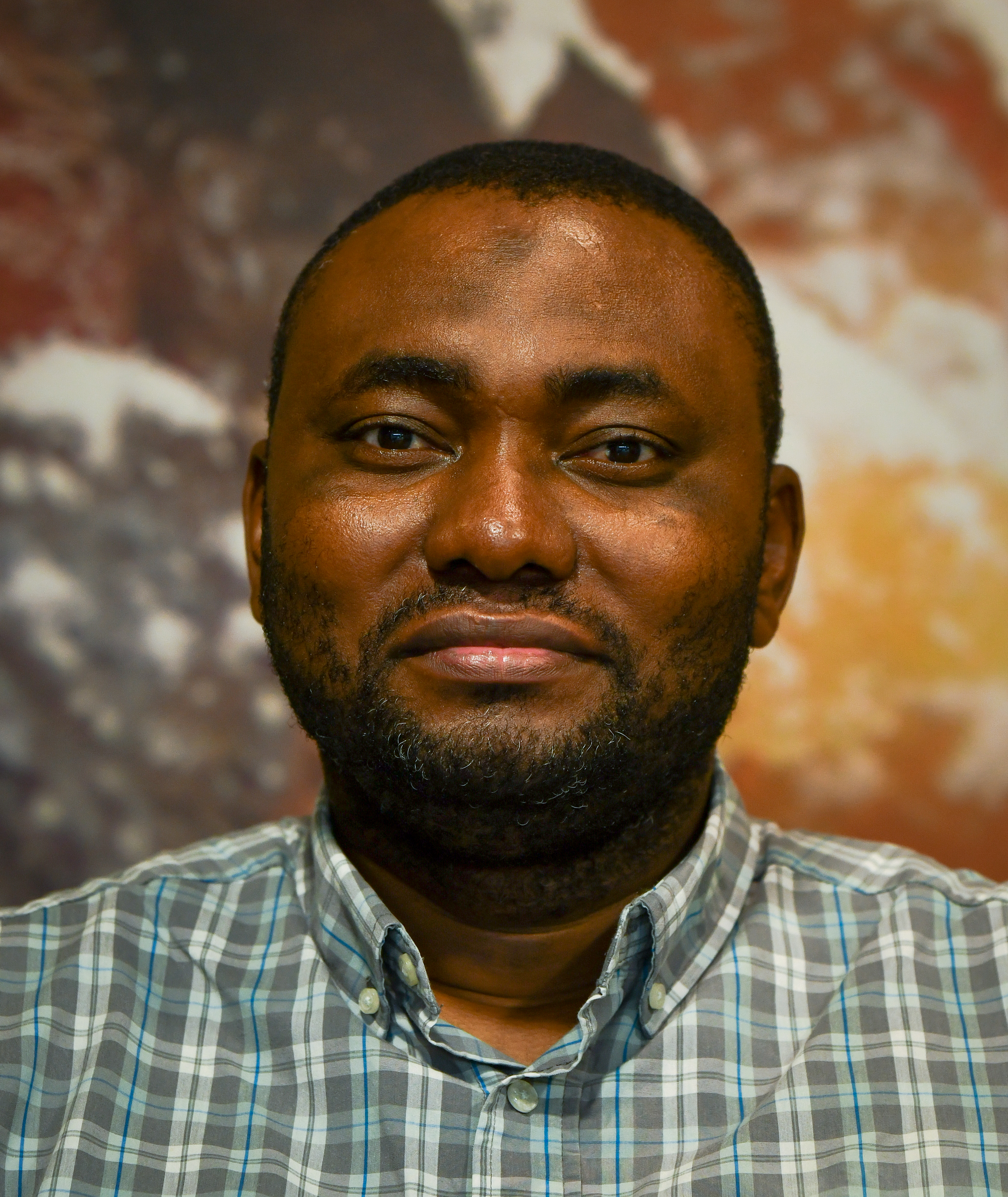 Dr. Musa Kana
Dr. Musa Kana Nigeria
2019
Research area: tuberculosis, respiratory diseases, child health
Home institution: Federal University Lafia, Nigeria
Host institution: National Institute of Environmental Health Sciences
Dr. Kana will spend his fellowship at the National Institute of Environmental Science (NIEHS), Research Triangle Park, North Carolina under the mentorship of Stephanie London, MD, PhD. His research will focus on molecular epidemiology, specifically on environmental, genetic, and epigenetic factors, and their interactions, in relation to respiratory health and illness across the life-course. This is to prepare him with the requisite skills to design and implement a proposed birth outcome study in Northern Nigeria.
Dr. Kana was trained at the University of Jos, Nigeria (MD, 2003), Usmanu Danfodiyo University Sokoto, Nigeria (MPH, 2006), National Postgraduate Medical College of Nigeria (FMCPH, 2011) and University of Porto, Portugal (PhD, 2018). He is a lifetime member of International Epidemiological Association. His research interests and pubic health practice are in perinatal and pediatric epidemiology, health systems and primary health care. For the paper, impact of the global financial crisis on low birth
Weight in Portugal: A Time-Trend Analysis. He won the best poster presentation in the Young Researchers Forum of the Association of Schools of Public Health in the European Region during the European Public Health Conference, October 2015, Milan, Italy.
As an early career scientist that has benefitted from the enormous research resources especially for statistics available in the developed world. He appreciates the significance of making these resources assessable to young scholars based in resource constraint countries. Dr. Kana is a collaborator on the
Bibliotheca Alexandrina-Serageldin Research Methods Library project, which built the largest research
Methods library in the world.
Dr. Oyebola will spend his fellowship at the National Heart, Lung and Blood Institute (NHLBI), under the mentorship of Swee Lay Thein Duffy, DSc His research will focus on genome-wide identification of
Potential modifiers of sickle cell disease (SCD).
The project will also delineate genetic variants in African and European sickle cell populations.
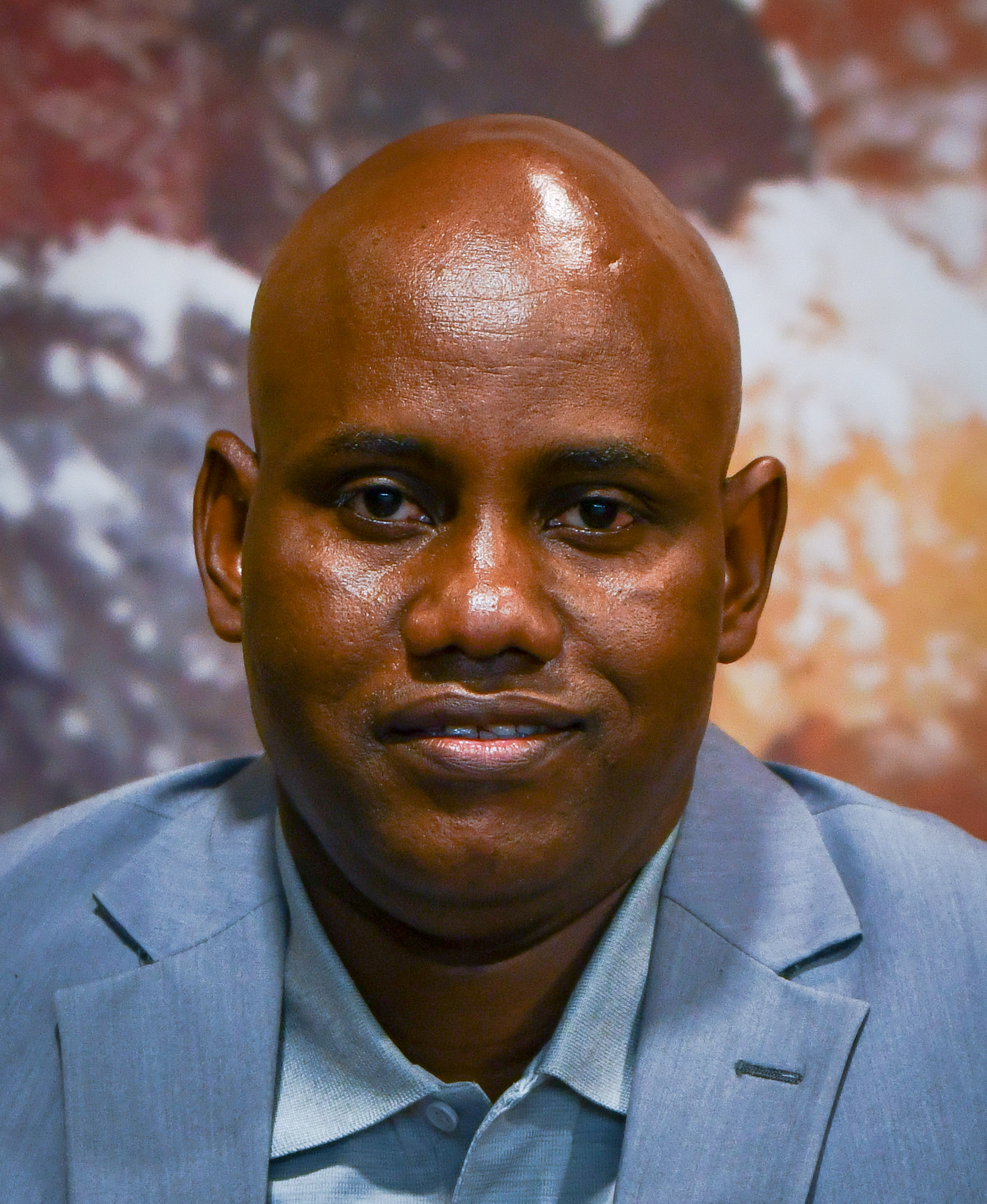 Dr. Hamma Maiga
Dr. Hamma Maiga Mali
2019
Research area: malaria, maternal and child health
Home institution: Institut National de Recherche en Santé Publique, Mali
Host institution: National Institute of Allergy and Infectious Diseases
Dr. Maiga will spend his fellowship year at the National Institute of Allergy and Infectious Diseases (NIAID) under the mentorship of Patrick Duffy, MD. His research will focus on monitoring antimalarial drugs used for seasonal malaria chemoprevention (SMC).
Dr. Maiga has worked as a Medical Doctor at the Malaria Research and Training Center (MRTC) in Mali since 2002. This position allowed him to gain extensive field and laboratory experience on malaria. Dr. Maiga participated as a clinical investigator and coordinator in many research studies including artemisinin-based combinations therapies, intermittent preventive treatment in children and pregnant
women, and malarial drug resistance. In 2016, he was promoted to a new position as research assistant at
the National Institute for Public Health Research in Mali. Dr. Maiga received his PhD in Parasitology-Medical Entomology in 2017 with a focus on molecular investigation of drug resistance used in seasonal
malaria chemoprevention (SMC).
Dr. Maiga expects that the APIT program will help to develop his career and his becoming an independent researcher . He hopes to contribute to the training of young scientists in Mali.
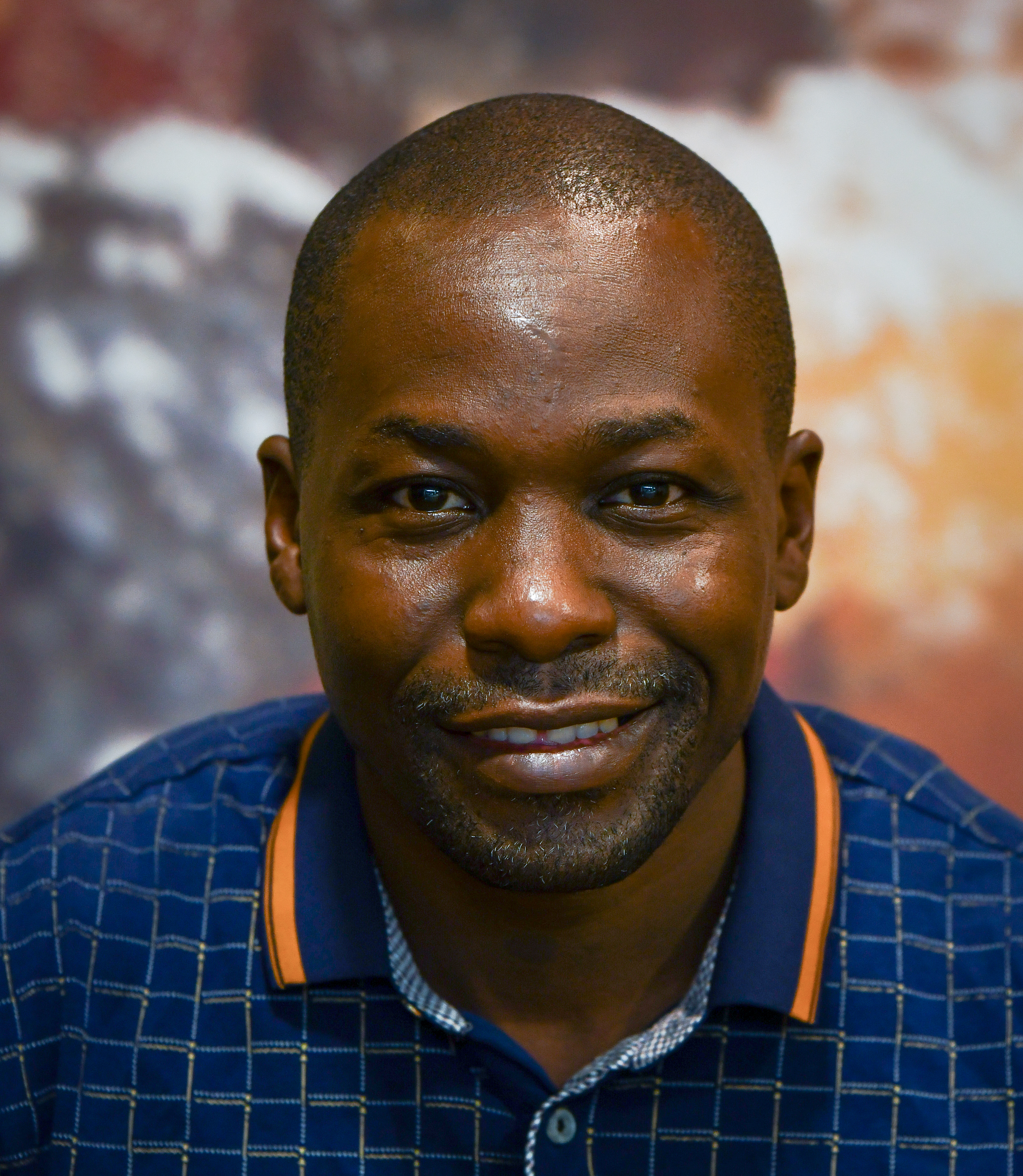 Dr. Bartholomew Ondigo
Dr. Bartholomew Ondigo Kenya
2019
Research area: malaria
Home institution: Egerton University, Kenya
Host institution: National Institute of Allergy and Infectious Diseases
Dr. Ondigo will spend his fellowship at the National Institute of Allergy and Infectious Diseases (NIAID) under the mentorship of Michal Fried, PhD. His research will focus on T-cell immune responses and their functional roles in the pathophysiology of placental malaria and acquired immunity to placental parasites.
Dr. Ondigo is a Kenyan fellow with growing expertise in the immunology of infectious parasitic diseases and global health. He completed his PhD training in Immunology from Maseno University, Kenya in 2013. In 2012 he was a recipient of a Fogarty Global Health Fellowship to study human immunity to malaria. To pursue his interests in parasitic diseases, he began his post-doctoral studies focusing on immunology of schistosomiasis at Kenya Medical Research Institute (KEMRI) in 2014.
Dr. Ondigo is highly enthusiastic about biomedical research and has been active in research projects that involve epidemiological investigation and basic research. He has published five first author articles in peer-reviewed journals. Outside of his current position as a researcher he teaches at Egerton University in
The Department Of Biochemistry and Molecular Biology. Dr. Ondigo’s long-term goal is to be an independent investigator and be part of team in translational research in infectious diseases. This will enable him to integrate his previous training and international experience to establish an infectious disease
Research program focused on tropical parasitic diseases. Dr. Ondigo hopes to become a successful
Researcher and leader in the field of global health.
 Dr. Kolapo Oyebola
Dr. Kolapo Oyebola Nigeria
2019
Research area: sickle cell disease
Home institution: University of Lagos, Nigeria
Host institution: National Heart, Lung and Blood Institute
Dr. Oyebola completed his PhD in Parasitology and Bioinformatics at the University of Lagos, Nigeria. Through a competitive early career postdoctoral fellowship, he adopted innovative cell biology and genomic techniques to identify drug-tolerant malaria parasites in the absence of Kelch-13 mutations linked with resistance. He hopes to be an established African researcher focusing on genomics of tropical infectious diseases and their interaction with the human hosts.
Dr. Oyebola’s research career has received considerable recognitions. He won the overall prize for best PhD Thesis, University of Lagos, Nigeria followed by a Wellcome Trust-DELTAS Postdoctoral Fellowship. He has also received training awards from the Harvard School of Public Health and the Broad Institute on Molecular SNP Barcoding and from H3Africa Bioinformatics Network to train on chip data analysis of genomewide association studies of human populations. Dr. Oyebola is a Future Africa Fellow,
An H3Africa Fellow and has served as a reviewer to several journals.
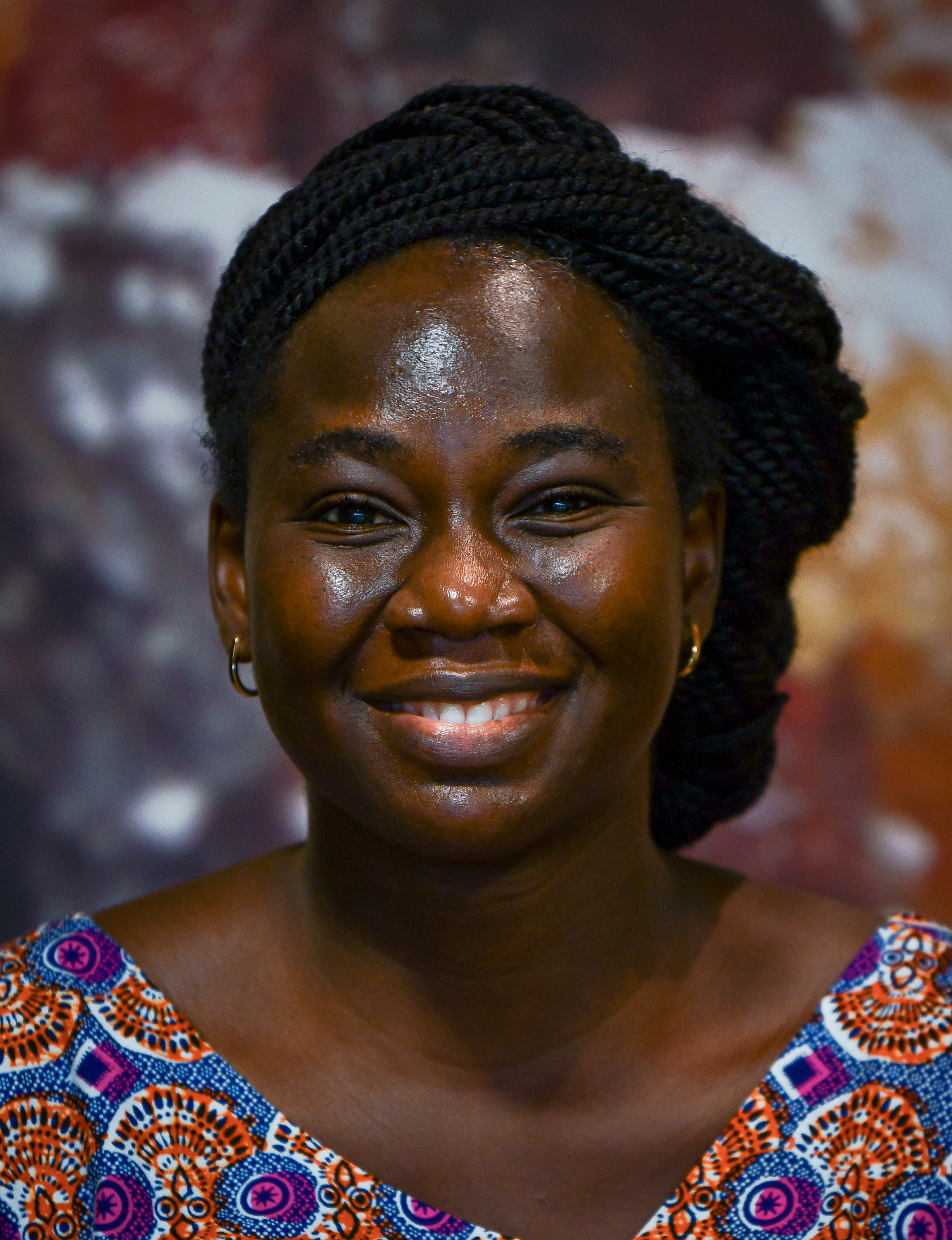 Dr. Irene Offei Owusu
Dr. Irene Offei Owusu Ghana
2019
Research area: infectious diseases, viruses
Home institution: Noguchi Memorial Institute for Medical Research, Ghana
Host institution: National Institute of Allergy and Infectious Diseases
Dr. Offei Owusu will spend her fellowship at the National Institute of Allergy and Infectious Diseases (NIAID) Rocky Mountains Laboratories in Hamilton, Montana under the mentorship of Vincent Munster, PhD. Her research will investigate the development of a surveillance network for emerging viruses in Africa and point-ofcare diagnostic assays for detection of the emerging viruses. Her focus will be on Lassa fever which is one of the most rapidly emerging viral diseases in Africa.
Dr. Offei Owusu received a PhD in Public Health from the University of Ghana. She is a young scientist with nearly 11 years of experience in the study of NTDs specifically lymphatic filariasis. She’s led two operational research activities: The first was a Bill and Melinda Gates funded project through the Task Force for Global Health, Atlanta, titled “Resolving the Critical Challenges Now Facing the Global Program for the Elimination of Lymphatic Filariasis; Operational Research Phases I & II.” The findings led to the development and implementation of Transmission Assessment Surveys (TAS) which are being utilized by all LF endemic countries. The second was a CDC funded project, “Post-MDA Surveillance for Lymphatic Filariasis Transmission.” This project evaluated the Wb123 ELISA assay for LF elimination programme. Dr. Offei Owusu has extensive experience in fieldwork and molecular research methods as a diagnostic tool for studying the epidemiology of infectious diseases. Dr. Offei Owusu’s long term professional goal is to be a public health expert, conducting groundbreaking research that will ultimately lead to eliminating emerging viral and parasitic diseases globally.
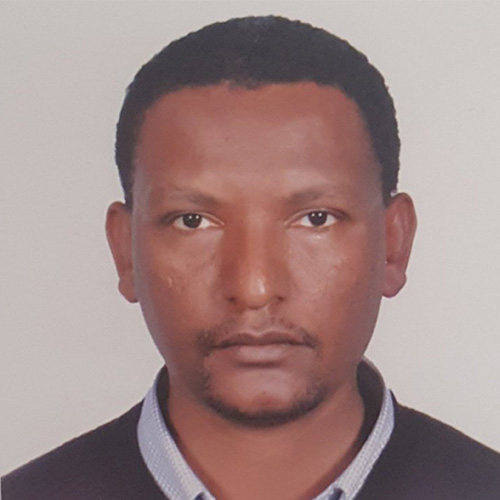 Dr. Markos Tesfaye Woldeyohannes
Dr. Markos Tesfaye Woldeyohannes Ethiopia
2019
Research area: child health
Home institution: St. Paul’s Hospital Millennium Medical College, Ethiopia
Host institution: National Institute of Nursing Research
Markos Tesfaye Woldeyohannes, MD, PhD will be a postdoctoral fellow at the National Institute of Nursing Research in Bethesda, Maryland under the mentorship of Paule Joseph, PhD, MSN, FNP-BC, CTN-B. His research aims to investigate intergenerational effects and biological mechanisms of under and over nutrition.
Dr. Woldeyohannes obtained his M.D from Jimma University, Ethiopia and PhD in Nutrition from University of Copenhagen, Denmark. His dissertation focused on food insecurity, nutrition, and quality of life among people living with HIV. He has led the Department of Psychiatry, Jimma University where he contributed to the development of services, training and research in mental health. He has been the research director of St. Paul’s Hospital Millennium Medical College in Addis Ababa since 2017.
Dr. Woldeyohannes research interests include the interaction between physical and mental health, food insecurity, and nutrition. He aspires to learn advanced research techniques to understand gene-environment interactions in the causation of chronic health conditions such as obesity and cardiovascular disease. Dr. Woldeyohannes is committed to teaching and mentoring research methods in health sciences.
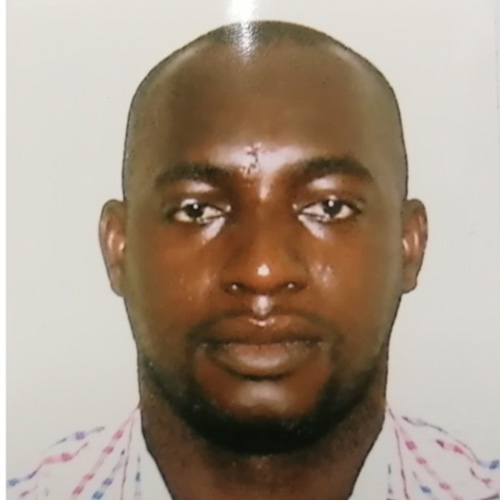 Abdoulie Bojang
Abdoulie Bojang Gambia
2020
Microbiome, respiratory infections, bioinformatics
|
Abdoulie Bojang is a Gambian who did his primary, secondary and college education in the Gambia before travelling to the UK for undergraduate and post graduate studies. In November 2008, he re-joined the Medical Research Council The Gambia as a scientific officer and later as a higher scientific officer working on a number of clinical trials and epidemiological studies. In October 2016, he won a 4-year MRCG@LSHTM scholarship to undertake PhD studies. His PhD focused on understanding the long-term impact of oral azithromycin prophylaxis given to women in labour on Staphylococcus aureus colonisation and Staphylococci macrolide resistance among mothers and their babies in the Gambia. During the12 years of his scientific career, he has published 29 peer reviewed articles with five as first author. He also won several international awards including International Symposium on Pneumococci and Pneumococcal Diseases (ISPPD) Travel grant, LSHTM Gairdner’s award and recently African Academy of Sciences postdoctoral award. His career ambition is to equip himself with sufficient skills and expertise in microbiology, molecular biology and bioinformatics in order to carry out surveillance for the emergence of antimicrobial resistance bacteria both within the community and hospitals in Gambia and beyond. |
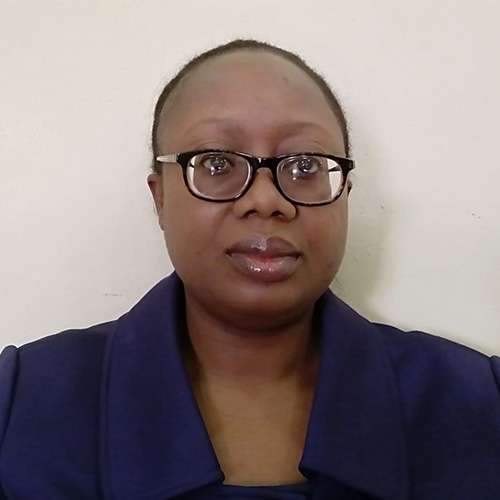 Ajakaye Oluwaremilekun Grace
Ajakaye Oluwaremilekun Grace Nigeria
2020
Protozoan parasites
Ajakaye Oluwaremilekun Grace is a doctoral degree holder in Parasitology from the Federal University of Technology, Akure. She is a Nigerian born lecturer and researcher with eight years’ experience. She is currently based at the Department of Animal and Environmental Biology Adekunle Ajasin University, Akungba Akoko, Ondo state. Nigeria where she lectures undergraduate and postgraduate courses. In addition, she serves as the research coordinator in her department. She has a strong interest in research on neglected tropical diseases evidenced by her research activities, awards and publications. She is currently studying the population genomics of different protozoans and helminths. She is a member of the Parasitology and Public Health Society of Nigeria and other prestigious professional societies.
 Benjamin Chimukangara
Benjamin Chimukangara South Africa
2020
Pneumocystis, HIV-related opportunistic infections
Dr. Chimukangara will spend his fellowship at the National Institutes of Health Clinical Center (NIH Clinical Center) under the mentorship of Joseph Kovacs, MD. His research will focus on understanding host-pathogen interactions in HIV and Pneumocystis infections. He will also focus on understanding viral dynamics in HIV-1 persistence and drug resistance through a collaborative network with the National Cancer Institute (NCI) under the mentorship of Frank Maldarelli, PhD. Dr. Chimukangara received a PhD in Virology from the University of KwaZulu-Natal in South Africa. His PhD work demonstrated the first evidence of high-levels of HIV-1 drug resistance among adults that have not initiated life-long HIV treatment in South Africa, supporting the decision for the country’s HIV treatment program (the largest HIV treatment program globally) to transition to more potent HIV drugs. He is a Lecturer in the School of Laboratory Medicine and Medical Sciences at University of KwaZulu-Natal and a postdoctoral researcher at the Centre for the AIDS Programme of Research in South Africa (CAPRISA), specialising in HIV-1 genotyping for research and clinical management, and large-scale data analysis in molecular virology.
 Chukwudi, Chinwe Uzoma
Chukwudi, Chinwe Uzoma Nigeria
2020
Protozoan parasites
Born to the family of Godwin and Uzoamaka Chukwudi in Anambra state, Nigeria, Chinwe obtained her first degree in Veterinary Medicine (DVM) from the University of Nigeria, Nsukka with distinctions in almost all Veterinary subjects offered. Her outstanding performance earned her immediate appointment as a lecturer, department of Vet. Pathology and Microbiology, and a Commonwealth Academic staff Scholarship for PhD studies. She holds a PhD in Molecular Biology and Microbial Genetics from the Royal Veterinary College, University of London. She has received various national and international awards and grants in recognition of her outstanding academic performance and research, including the Nigerian Young Academy’s National Young Scientist Award 2017, Erasmus Mundus DREAM ACP scholarship 2016 (Universidad De Leon, Spain), and Commonwealth Academic Fellowship, 2017/2018 (Royal Veterinary College, London). Her research work is focused on strategies to improve the therapeutic efficacy of antimicrobials via improved understanding of molecular mechanisms of action, targeted cell delivery, biomolecular interactions, molecular pathology and diagnostics; as well as finding new uses for old drugs. She is self-motivated, result-oriented, and strategically focused. She believes that it is time for Africans to rise up and solve African problems by ourselves, as well as contribute our quota to global issues.
 Daniel Muthui Kiboi
Daniel Muthui Kiboi Kenya
2020
Malaria
Dr. Kiboi is a Kenyan. He completed his Ph.D. in Molecular Medicine at Jomo Kenyatta University of Agriculture and Technology (JKUAT), Kenya. He later won a prestigious Wellcome Trust-DELTAS Postdoctoral Fellowship. Dr. Kiboi research interest is analyzing the biochemistry of malaria parasites to expose biological molecules and pathways that could be exploited for interventions. He established a unique niche of selecting, phenotyping, and genotyping drug-resistant Plasmodium berghei parasites over his postgraduate years. He selected pools of drug-resistant parasites against the main long-acting drugs in the artemisinin-based combination therapies in clinical use and those under development. These drugs are lumefantrine, piperaquine, amodiaquine, and pyronaridine. Together with other scientists, he mapped promising mutations in proteins that are highly plausible mediators of drug transport and action. His PostDoc expanded his research focus to validating Plasmodium proteins associated with drug resistance and genes of interest to malaria immunity using both PlasmoGEM resources and the CRISPR/Cas9 system. He aims to maintain his focus on drug resistance mechanisms, focusing on the P. falciparum parasites. Dr. Kiboi is also a Lecturer at the Department of Biochemistry, JKUAT. He hopes to continue mentoring other young scientists. He has previously won several research grants/fellowships and published ten peer-review publications.
 Henrietta Mensah-Brown
Henrietta Mensah-Brown Ghana
2020
Malaria
Dr. Henrietta Mensah-Brown holds a Bachelors degree from Kwame Nkrumah University of Science and Technology, a Masters’ in Biochemistry and PhD in molecular biology of infectious diseases from the University of Ghana. Her research areas are malaria biology and immunology, focusing on the pathogenesis of Plasmodium falciparum malaria in children. One aspect of her work is aimed at gaining a better understanding of the mechanisms used by Plasmodium falciparum for invasion of red blood cells. Another aspect is focused on investigating immune responses to proteins used in red cell invasion and the targets of invasion inhibitory antibodies. As a TIBA out of Africa postdoctoral fellow, her work focused on Plasmodium falciparum erythrocyte membrane protein 1 (PfEMP-1) which has been implicated in the pathogenesis of severe malaria. At the NIH, Dr. Mensah-Brown will be continuing her work on PfEMP-1 in children with severe malaria.
 Kenneth Ssebambulidde
Kenneth Ssebambulidde Uganda
2020
HIV-associated cryptococcal meningitis
Dr Kenneth Ssebambulidde MBChB MSc Infectious Diseases Institute, Makerere University, Kampala, Uganda. Kenneth obtained his medical training from the College of Health Sciences, Makerere University and an MSc Immunology of Infectious Diseases from the London School of Hygiene and Tropical Medicine. He is a distinguished academic performer who graduated top of his medical school cohort, was selected on merit to undertake an elective at Yale University School of Medicine and completed his MSc at the London School with a distinction. He currently works as a medical officer in the research department at the Infectious Diseases Institute, College of Health Sciences, Makerere University. He is interested in the immunological basis of disease with particular interest in the link between communicable and non-communicable diseases. His research is related to the association of abnormal cholesterol levels and pathogenesis of infections. For his Fellowship, he aims to learn analytical skills ranging from lab-bench work, to grant applications looking to understand the basis of inflammatory responses during Cryptococcal meningitis treatment in an HIV negative patient population. These skills will then be utilized on returning to Uganda where he will study immune responses in HIV-associated cryptococcal meningitis aiming to find a pathway that can be targeted by immune modulating drugs.
 Michael Frimpong
Michael Frimpong Ghana
2020
Microbiome, respiratory infections, bioinformatics
Dr. Michael Frimpong is a Molecular Immunologist lecturing at the Department of Molecular Medicine, School of Medicine and Dentistry with the Kwame Nkrumah University of Science and Technology (KNUST). He is also a Senior Research Fellow at the Kumasi Centre for Collaborative Research in Tropical Medicine, KNUST where he leads a team of young scientists working on developing and implementing novel and innovative diagnostic tests for detecting Neglected Tropical Diseases (NTDs) in resource limited settings. He holds a PhD in Immunology from the Kwame Nkrumah University of Science and Technology and a Postgraduate Certificate in Molecular diagnostics from the Ludwig-Maximilians University, Munich. Since 2014, he has contributed considerably to the understanding, development of new diagnostic tools and treatment for NTDs particularly Buruli ulcer with over 20 peer reviewed articles on the topic in high impact journals (https://pubmed.ncbi.nlm.nih.gov/?term=Frimpong+Michael). Dr. Frimpong is a proud recipient of several grants including the prestigious European & Developing Countries Clinical Trials Partnership (EDCTP-CDF) grant for early career scientist, International Society for Infectious (ISID) grant, the African Researchers’ small grant program (SGPII) from the African Network of Neglected Tropical Diseases, TWAS-DFG Cooperation Visit Programme from The World Academy of Sciences and Germany Research Foundation.
 Nicholaus Peter Mnyambwa
Nicholaus Peter Mnyambwa Tanzania
2020
Tuberculosis
Dr. Nicholaus Peter Mnyambwa a Postdoc fellow, Tuberculosis Research Section (TRS) of the Laboratory of Clinical Immunology (LCIM), Division of Intramural Research (DIR) of the National Institute of Allergy and Infectious Diseases at the National Institute of Health (NIH), USA. The program is funded by NIH and Bill and Melinda Gates Foundation through a partnership with the African Academy of Sciences (AAS). Dr. Nicholaus received his PhD in Health and Biomedical Sciences in 2019 from the Department of Global Health and Biosciences at the Nelson Mandela African Institution of Science and Technology. During his PhD candidacy, he served as a fellow (Mycobacterial infections) with the Afrique-ONE ASPIRE consortium; one of the prestigious DELTAs programmes in Africa. In 2018, he joined the National Institute for Medical Research (NIMR)-Muhimbili Centre, Tanzania, as a clinical research scientist. His research interests centred on molecular epidemiology and diagnosis of TB/MDR-TB, TB vaccines, and clinical trials. Dr. Nicholaus has been involved in TB research at the national and regional levels and has authored 13 articles published in international peer-reviewed journals. Dr. Nicholaus seeks to strengthen existing partnerships and create new networks as he advances to become an independent leading scientist in Africa.
 Olivia Precious Matshabane
Olivia Precious Matshabane South Africa
2020
Genetic diseases, stigma
Dr. Olivia Matshabane is a postdoctoral researcher in the Department of Medicine at the University of Cape Town, South Africa. She is trained in psychology and ethics of African genomics. Her past work focused on exploring how a genetic attribution to disease relates to the stigma experiences of South African Xhosa people with schizophrenia. Her current research focuses on questions around feedback of incidental findings in the context of neurogenetics research. Dr. Matshabane received her PhD in Medicine from the University of Cape Town, her Masters from the Stellenbosch University, and her bachelors from the University of the Western Cape, South Africa.